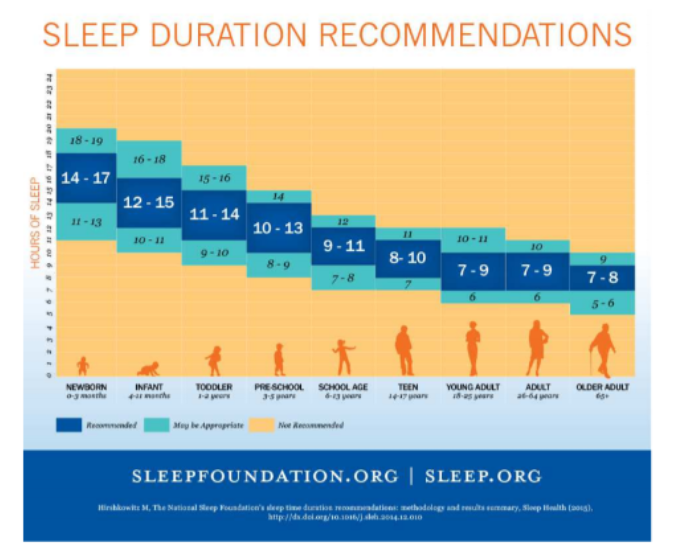How Much Sleep Does My Baby Need (And Are They Getting Enough?)
Sleep is probably the most significant concern parents have at well-baby visits. And in parent facebook groups. And online forums. And when talking with friends over text at 2am when your baby is up...again....
Quite frankly, it outranks pretty much every other concern parents have except perhaps feeding and growth.
Part of the reason for this concern is the conflicting information out there on what is "normal". It’s hard to know how worried to be, or how to support sleep when you don’t know what consistutes enough of it!
I've written quite a bit on this in the past (see my article on biologically normal sleep here and an article on why the science on sleep is so varied).
Today, however, I'm focusing on the practical question:
How much sleep do babies need?
Opinions about how much sleep babies need vary widely (and, perhaps not coincidentally, the sleep needs of individual babies vary widely from each other, too!). Guidelines and tables around total sleep are often influenced by myths and misconceptions like “sleep begets sleep”, “keep them up later to get them to sleep in”, “earlier bedtime is always better”, “drop a nap” (or “don’t give up on naps”) so baby is tired/ not overtired at bedtime.
With so many varied opinions on how much sleep is needed for babies to thrive, we can be grateful that the National Sleep Foundation can provide some answers, though the final answer may be a bit surprising.
The range of what may be reasonable for total sleep (the amount of day and nighttime sleep a baby gets in 24 hours) is really broad (see below). This can be quite surprising for parents who have seen narrow and rigid guidelines that require enforcing strict bedtime for daytime and nighttime sleep.
A study published in 2014 in the journal, Sleep Health (the journal of the National Sleep Foundation) helped establish recommended amount of sleep per age group, as well as what “may be appropriate”.
It is recommended by the National Sleep Foundation that babies 4 to 11 months, for example, sleep 12-15 hours in a 24 hour period (naps plus nighttime sleep). However, 10-18 hours may be appropriate: it depends on the needs of the individual baby.
My approach with my one-on-one clients is to use this information to reassure almost every parent that their baby is within a reasonable range of sleep —it is very rare to have a client whose baby is sleeping less than or more than these broad ranges. And virtually all my clients have babies sleeping within the recommended range.
That can be very reassuring!
It can also be helpful in avoiding getting caught up in the “shoulds”: my baby should be sleeping x hours a day; I should be getting them down for more daytime sleep, or I should be putting them to bed earlier. (It’s possible these approaches can help your baby’s sleep become easier, but it’s more of a “does this meet their sleep need?” than it is a “should”.
This way you might avoid worrying about making sleep happen when your baby doesn’t actually need that much sleep.
As reassuring as these ranges are in lessening the pressure to make sleep happen a particular way, it’s important to appreciate that the biggest question to answer is how much sleep does YOUR baby need.
Some babies need very little sleep (much to the chagrin of tired parents), and some babies need a lot (sometimes so much that it can be worrying).
If you are worried about how much sleep your baby is getting, read on!
How Much Sleep Does YOUR Baby Need?
So, your baby is “in the range” of recommended sleep. But is your baby getting the right amount of sleep for them? And if so, how can you be sure?
The ranges provided by the National Sleep Foundation are so broad that they don't really help parents figure out what their baby needs. There is, however, a reasonably reliable and 100% free, close-by source for determining what your baby needs: your baby!
Who better to tell you what your baby needs than them!
Generally, look for the following clues that your baby is getting enough sleep (not too little, not too much) for them, even if it doesn’t feel nearly enough for you!
Your baby may be getting a reasonable amount of sleep for them if:
after a nap, your baby is waking up relatively content (even if this means waking up cranky and upset initially, and they need support to fall back asleep for part 2 of their nap);
in the morning, your baby wakes up without you having to wake them and is relatively content;
bedtime is a reasonable length of time (it doesn’t take an hour and a half or more every single night);
split nights (when your baby wakes for 1-2+ hours in the middle of the night, happy and ready to go) are rare; and
false starts (when your baby wakes up 20-40 minutes after going to bed for the night) don’t happen every night for weeks.
But what if your baby is experiencing one or more of the above “clues”?
Well, there are lots of reasons that a baby may be struggling to get the right amount of sleep for them, especially in the first few years: teething, illness, noise, discomfort, reflux, food or environmental sensitivities, temperature, etc.
By identifying (and where possible, reducing) the impact of these interruptions, you'll be optimizing your baby's chances of getting what they need (not just what books tell you they should have) within what they are developmentally capable of.
If you've ruled out all the usual suspects and your baby is still waking up cranky or having a very difficult time falling and staying asleep, it's possible you've got a high needs baby, which is not uncommon with the families who reach out to me.
As Macall Gordon, a professor and child temperament researcher has said, parents of babies with high needs often need extra support in navigating sleep and sleep needs. It’s an intense temperament that impacts sleep and can be extra exhausting for parents. And we all know that tired parents need all the support they can get!
One last perspective I’d like to empart to you: if getting your baby to fall asleep and stay asleep, remember that as development progresses, your baby’s sleep needs will drop. When resistance to sleep is high, it’s worth considering that you’re expecting more sleep from your baby than they need… It’s a developmental inevitability, and fighting that can cause more frustration and exhaustion than accepting it.
What’s the take home message?
Ranges for acceptable sleep are broad because babies are all unique. So their sleep needs are unique too!
Want to know if your baby is getting enough sleep? Look to them to give you the clues.
Whether your baby is getting enough sleep or too much sleep for them, a little help navigating this intense time, can go a long way.
Reach out if you’d like to explore if I’m the right person for supporting you with your baby’s sleep.

